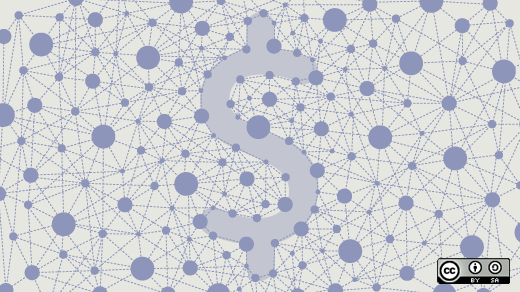Crowdfunding is a big discussion topic in the world of people who create things. In particular, subscription-based patronage models have been growing in popularity over the last few years. And it's not just for artists and other creatives. Open source development has started adopting this model with growing success. Between things like the Blender Cloud, Krita's periodic Kickstarter development campaigns, or the Godot engine's Patreon subscription, crowdfunding has proven to be clearly beneficial for people who make useful and interesting things.
But for smaller projects or individual creatives, there are concerns. There's software out there for running a subscription crowdfunding campaign, but that requires time and expertise to set up and maintain. There are also well-known platforms like Patreon and Indiegogo; however, they are proprietary platforms funded by your backers' contributions. They take a cut of every contribution and harvest private information about each person who gives you money. And, as the recent rollercoaster ride regarding Patreon's fee changes (and unchanges) shows, policies can change on a whim.
Fortunately, there is an open source solution. Actually, there have been a few over the years, but at this moment, there's one that's been in the spotlight (in a good way): Liberapay. Originally a fork of Gratipay, Liberapay is a platform for scheduling recurring payments to fund projects you're interested in. More specifically, Liberapay is geared for creators who produce open content. That includes art, music, and educational material released under open licenses like the Creative Commons. And yes, "open content" also includes free and open source software.
I found out about Liberapay through David Revoy's excellent Pepper & Carrot webcomic project. Pepper & Carrot is not the only project on Liberapay, though it is arguably one of the more successful creative projects there. However, its larger focus is on open source software projects. Contributors can choose to be patrons of such projects as Mastodon, F-Droid, MariaDB, and even Krita. There's also a whole section for pledges, where people promise to contribute a recurring payment to projects before those projects even have an account set up.
Aside from differences in their target audience, other key points differentiate Liberapay from more conventional platforms. Probably the most important one is that Liberapay is open source. You can hop right on over to its GitHub page and dig into its Python source code, licensed under a CC0 Creative Commons Public Domain Dedication license. As a technical person (or someone who's friends with technical people), you can see exactly what makes Liberapay work. And if you find a problem, a fix is just a pull request away.
Another key factor that separates Liberapay from other patronage platforms is the way its development is funded. Whereas most platforms are funded by taking a small percentage of every transaction, Liberapay doesn't do that. The only fees on contributions are those imposed by the payment processor. So how exactly is Liberapay funded? It eats its own dog food. Liberapay is a project on the platform, just like any other project. If you want Liberapay to receive funding and continue development, you can back the project and actively contribute. This system offers a lot of transparency and neatly circumvents the "who pays the fees" problem.
And because Liberapay doesn't have a commercial interest in your transactions (it's a nonprofit organization in France), that means the developers are less interested your contributors' personal information. As someone interested in backing a project, you can be confident your contribution is made anonymously. You're not going to be hassled by that project in the future, and your contact information isn't going to be sold to a third party. That said, there are communities on Liberapay with newsletters that you can subscribe to, should you choose.
Of course, in the realm of subscription-based recurring payment platforms, Liberapay is relatively young and snuggles up to a rather specific niche. As far as I can tell, no one there is making out like gangbusters. However, for open projects, even small contributions can be a big help. I'm looking forward to seeing more of those pledges claimed and more independently funded open projects in the world.
Are you a creator in the commons? Do you make something under an open license? How are you funding that work?







1 Comment